Hello friends!
I hope you had a lovely weekend and are enjoying the unseasonably warm temperatures! It certainly does not feel like Winter now!
Let us review the bad news, the good news, and I will answer the most common questions of the week. Then I will share my silver lining of the week.
What is the bad news?
There have been a shocking 268 MILLION cases of COVID-19 reported worldwide, with 5.3 MILLION deaths.
We have seen over 1.8 MILLION cases in Canada and almost 30,000 deaths. There are currently 31,000 active cases of COVID here.
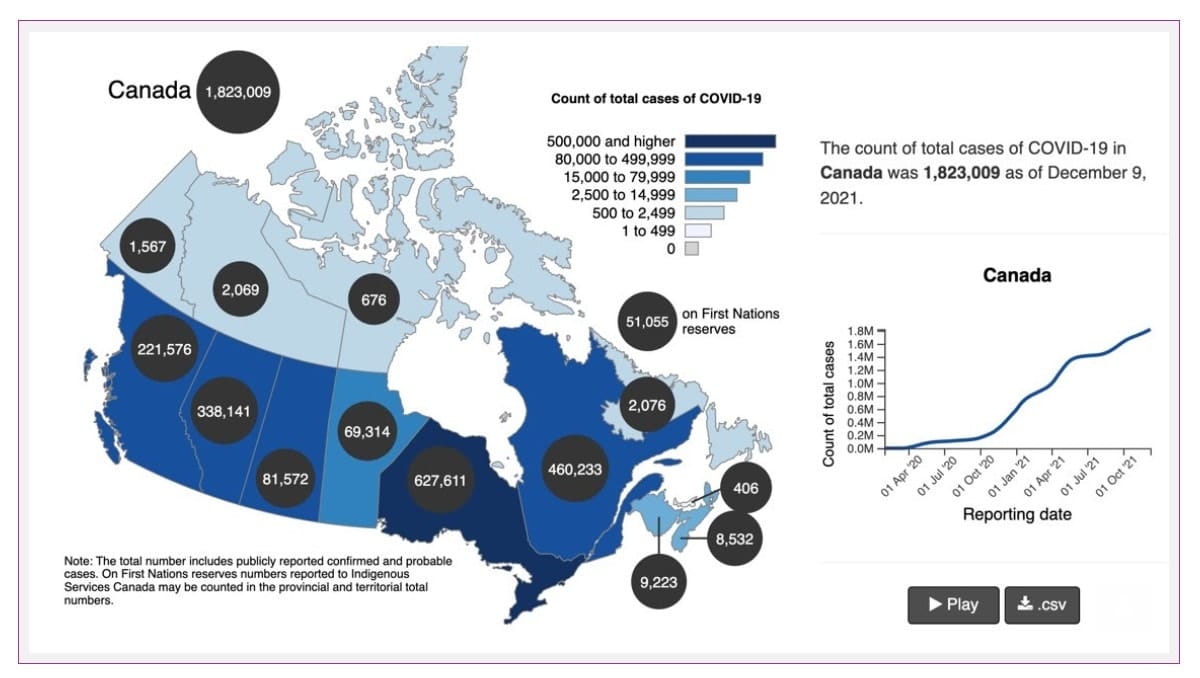
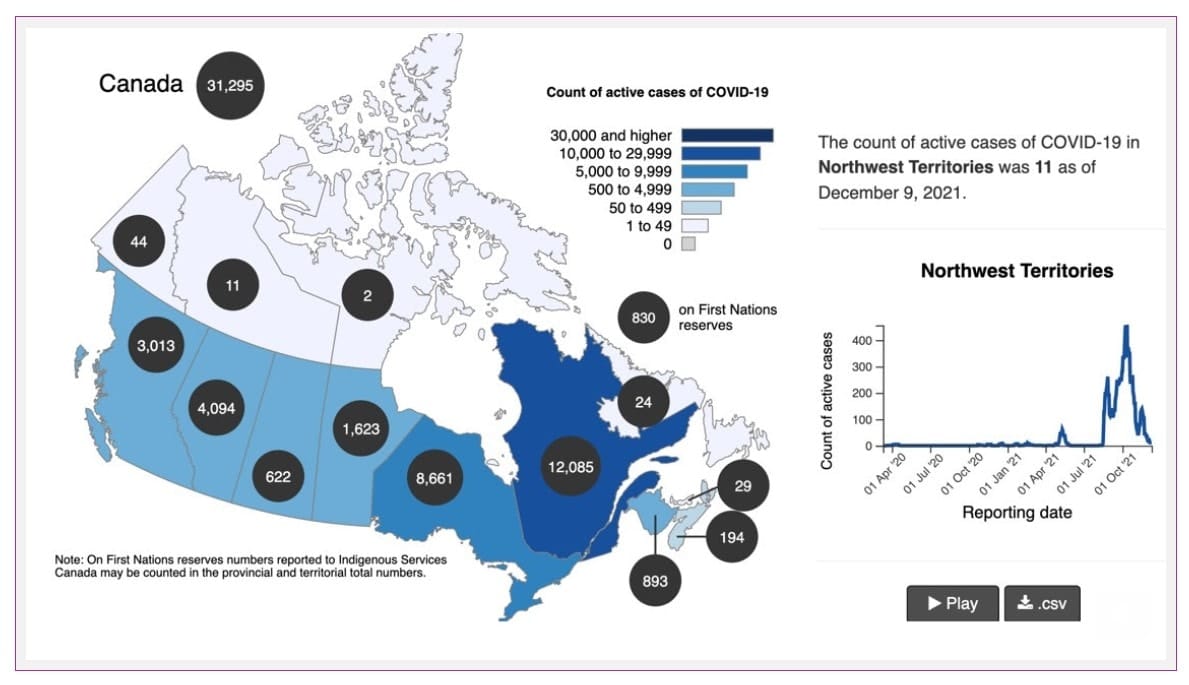
Cases are increasing in Ontario, with the highest number of cases reported since May and a positivity rate of 3.5%. The 7-day rolling average is now 1055, up from 851 the week before. Over 1800 cases were reported per day last week in Quebec, the highest number since April.
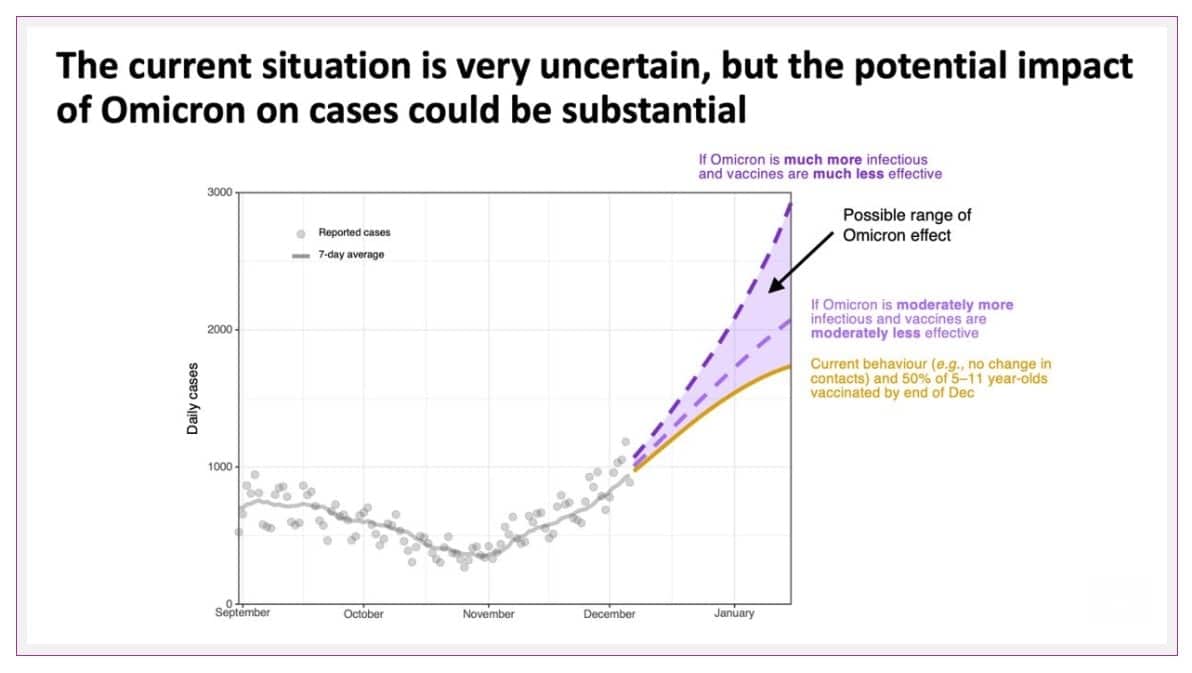
Cases are rising in schools, and several Toronto schools have closed due to outbreaks in the last two weeks. Modelling by the Ontario Science Advisory suggests that cases and hospitalization will rise substantially, even without Omicron, which may wreak havoc. There are concerns that new restrictions will need to be imposed this winter to curtail the rise in cases.
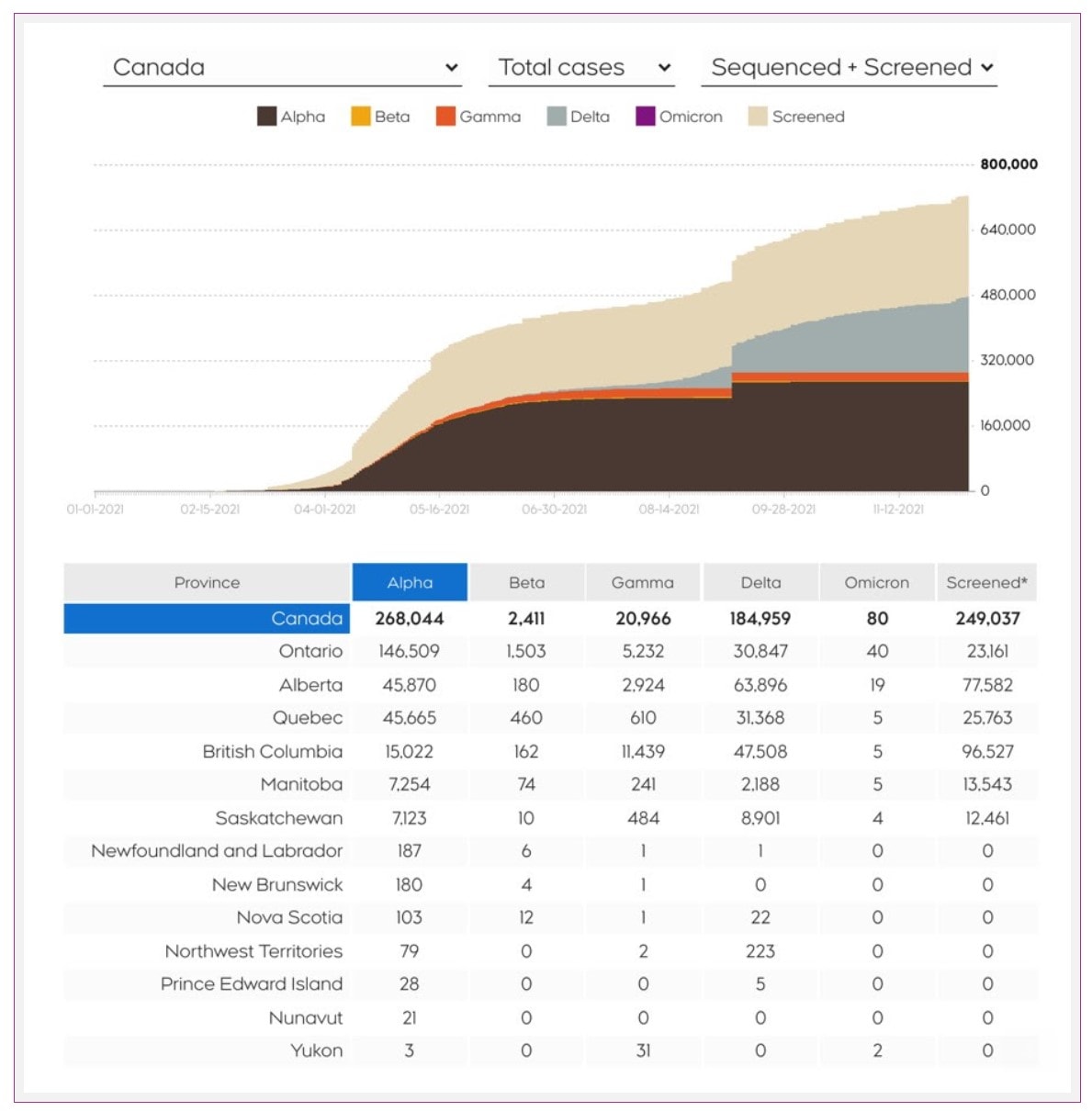
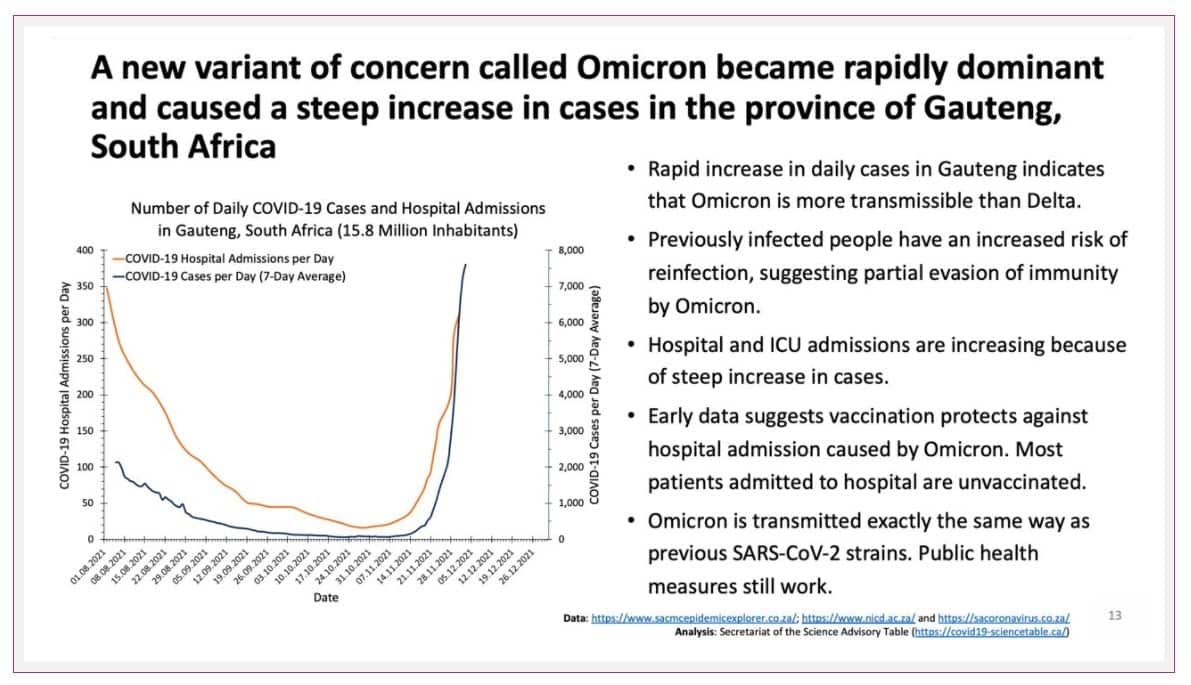
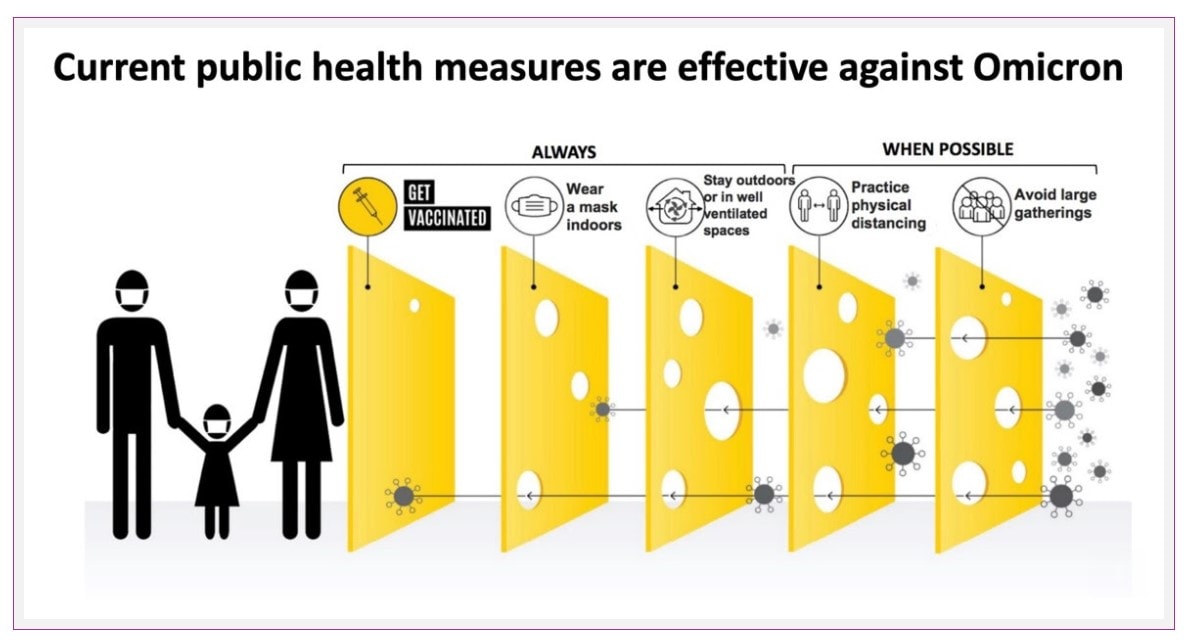
What is the good news?
As of December 2, 2021, 72 MILLION vaccines had been given in Canada, 2.9 MILLION to children.
86% of Canadians over five have received their first dose, and 80.2% are fully vaccinated.
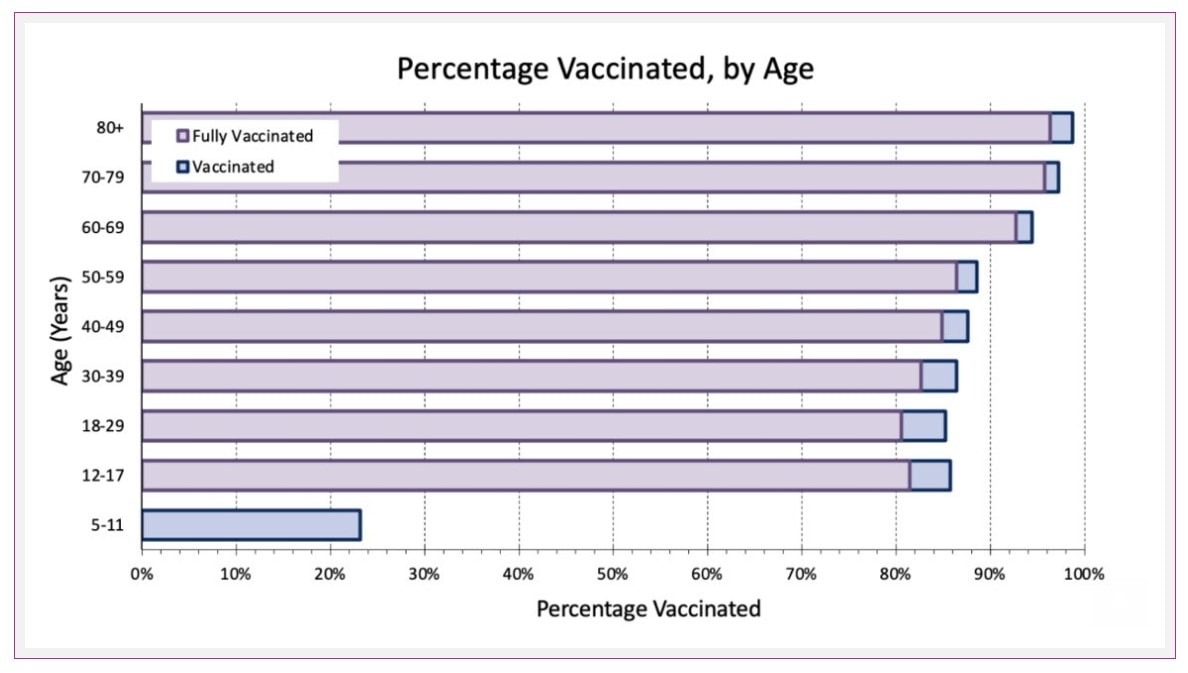
Worldwide, 8.3 BILLION doses have been given, representing 45.1% of the world’s population receiving the first, and 55.4% are fully vaccinated.
Dr. Dina, what’s the deal with Omicron?
Last week, Public Health Ontario released an Omicron Evidence Brief.
It highlighted the following:
- The number of countries reporting Omicron cases continues to increase;
- As of December 7, Omicron cases have been reported in 57 countries from all six World Health Organization regions;
- In Canada, 49 cases of Omicron had been detected in five provinces;
- Modelling suggests a higher binding affinity compared to the Delta variant. This means Omicron has the potential to be more contagious;
- Mutations in the strain suggest possible reduced efficacy of existing neutralizing antibodies from previous infection and vaccination. Vaccines will still work, but likely not as well; and,
- There is a high degree of uncertainty, but the risk is high for Omicron transmission, severe disease, reinfection, and breakthrough infection despite vaccination.
Are two doses of the COVID vaccines enough to prevent Omicron?
Scientists are still trying to understand how contagious Omicron is and whether it causes more severe illness.
Pfizer announced last week that two doses of its vaccine might not be enough to prevent infection from Omicron, and a booster dose is needed.
We have long worried that existing vaccines will need tweaking to keep up with variants of concern, and vaccine makers are racing to update their COVID-19 vaccines to ensure they are still protective against Omicron and potential new variants.
Is there an inhaled COVID-19 vaccine?
Researchers at McMaster University (my Alma Mater!) have been approved to begin human trials on two Canadian-made INHALED COVID-19 vaccines to target the lungs.
McMaster scientists said last week it would test the safety and immune potency of the inhaled vaccines during Phase 1 clinical trials as they recently received Health Canada approval. Both inhaled vaccines will be given as boosters to people who have already received two doses of a COVID-19 mRNA vaccine.
The McMaster vaccines utilize three different COVID-19 proteins, including the spike protein, and will target parts of the virus that do not mutate.
At least 30 healthy volunteers will participate in phase 1 clinical trial funded by the Canadian Institutes for Health Research. The researchers will assess the immune response in the lungs and blood of study participants after vaccination while watching for side effects.
Does vaccine status affect admission and ICU need?
These graphics paint a clear picture of the importance of vaccination. Unvaccinated people are far more likely to get infected with COVID, require hospitalization and need ICU-level care. Double vaccinated people should still take heed, though, and follow public health guidance (masking, distancing, staying home if sick, and minimizing large groups), as they can still get COVID and even get sick from it.
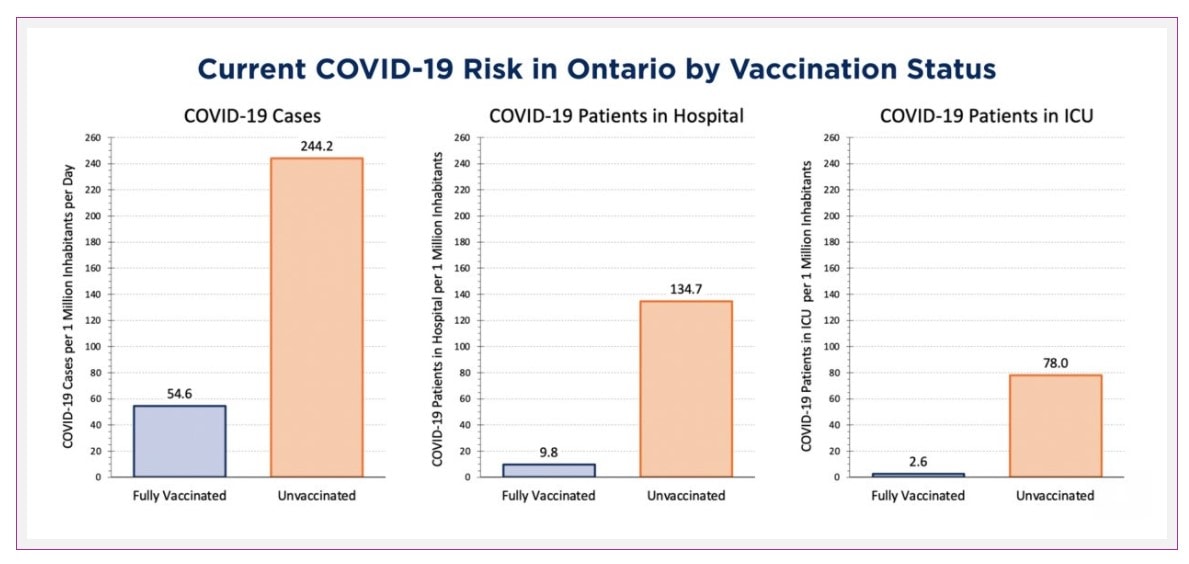
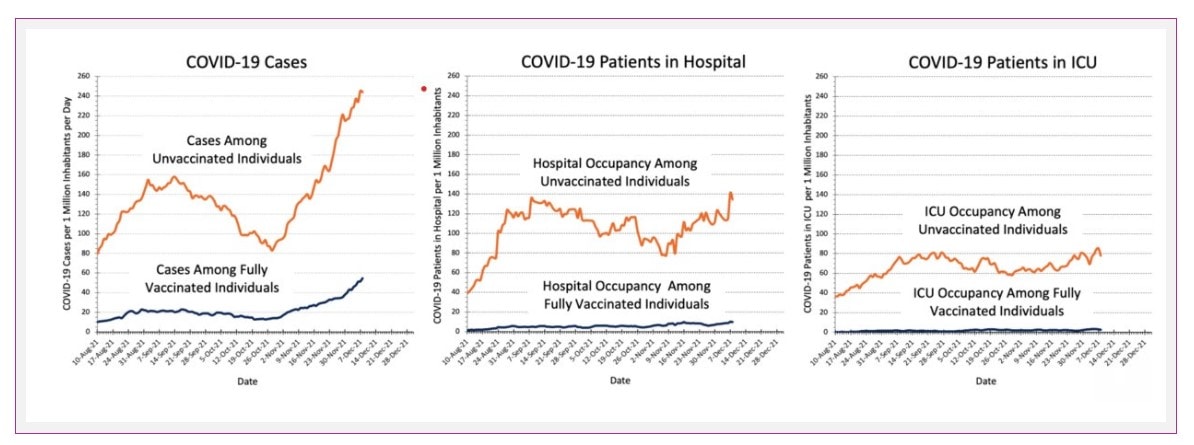
My silver lining of the week
Though I grew up in Ottawa and have lived in Ontario my whole life, I don’t love the cold. These unseasonably warm temperatures are my jam.
Kids are off school in a few short weeks, and we will have a chance for some quality family time. We got used to being with the kids all day, every day, for 15 months. And now they are back in school. While we are all thrilled they are back with their teachers and friends every day, it is a huge change. I am looking forward to some reconnecting time over the break.
Have a wonderful week, everyone!



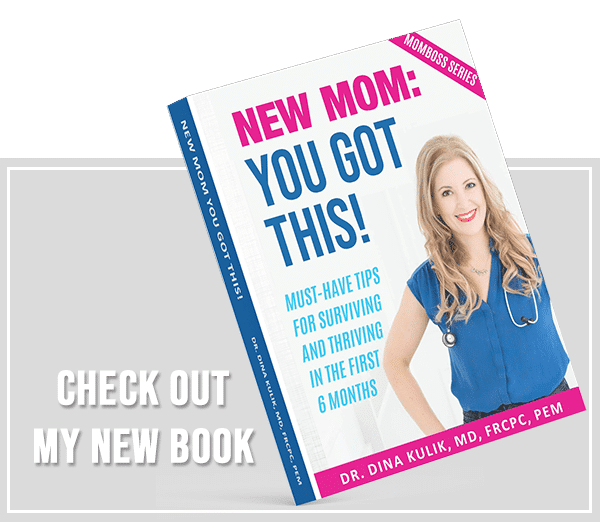


![[Dr. Dina News] IMPORTANT UPDATE re. VIRTUAL CARE](https://drdina.ca/wp-content/uploads/2021/01/dr-dina-kulik-kids-and-virtual-care-1a-400x250.jpg)
![[Dr. Dina News] COVID-19 Vaccine for Infants and Young Children.](https://drdina.ca/wp-content/uploads/2021/04/dr-dina-kulik-kids-and-vaccines-400x250.jpg)
![[Dr. Dina News] COVID-19 Vaccine for Infants and Young Children.](https://drdina.ca/wp-content/uploads/2022/04/DRD-1-400x250.jpg)






